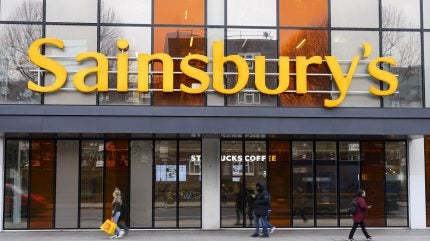
British supermarket chain Sainsbury’s is launching a logistics initiative that will convert food waste into biofuel to power its fleet of heavy goods vehicles (HGVs).
From March 2025, the project will be implemented at the Emerald Park distribution centre in Bristol, where biofuel derived from the company’s own food waste will fuel 30 trucks – half of the site’s fleet.
This eco-friendly endeavour is expected to result in an annual reduction of more than 3,000 tonnes of carbon dioxide emissions – comparable to the electricity consumption of 1,950 households each year.
The transformation of food waste into biogas is facilitated by RenECO, a waste processor collaborating with Sainsbury’s.
The process involves anaerobic digestion, which breaks down organic material without oxygen to produce biogas. This biogas is then refined into a liquid biofuel that can power HGVs.
Sainsbury’s states that the initiative is distinguished from conventional practices by its commitment to sustainability.
The retailer explains that rather than mixing biomethane with fossil fuels, the entire quantity of fuel used by Sainsbury’s trucks will be sourced directly from the retailer’s own waste products.
The collaboration between Sainsbury’s and RenECO exemplifies how partnerships can lead to innovative solutions that significantly mitigate environmental impacts.
The system enables meticulous monitoring of carbon savings, aligning with Sainsbury’s goal to slash scope 1 and 2 emissions [from sources it owns or controls, and those which are a consequence of its activities but occur from sources not owned or controlled by it] and achieve net zero operations by 2035.
Sainsbury’s property, procurement and electric vehicle ventures director Patrick Dunne stated: “Today’s announcement underscores the power that collaboration has in driving impactful change across business.
“We are proud to have worked closely with our supplier RenCo to deliver a pioneering move that supports our commitment to circularity and helps us to take a further step towards becoming net zero across our operations by 2035.”
In January 2025, Sainsbury’s revealed its three-year Next Level strategy as its implementation enters its second year.



